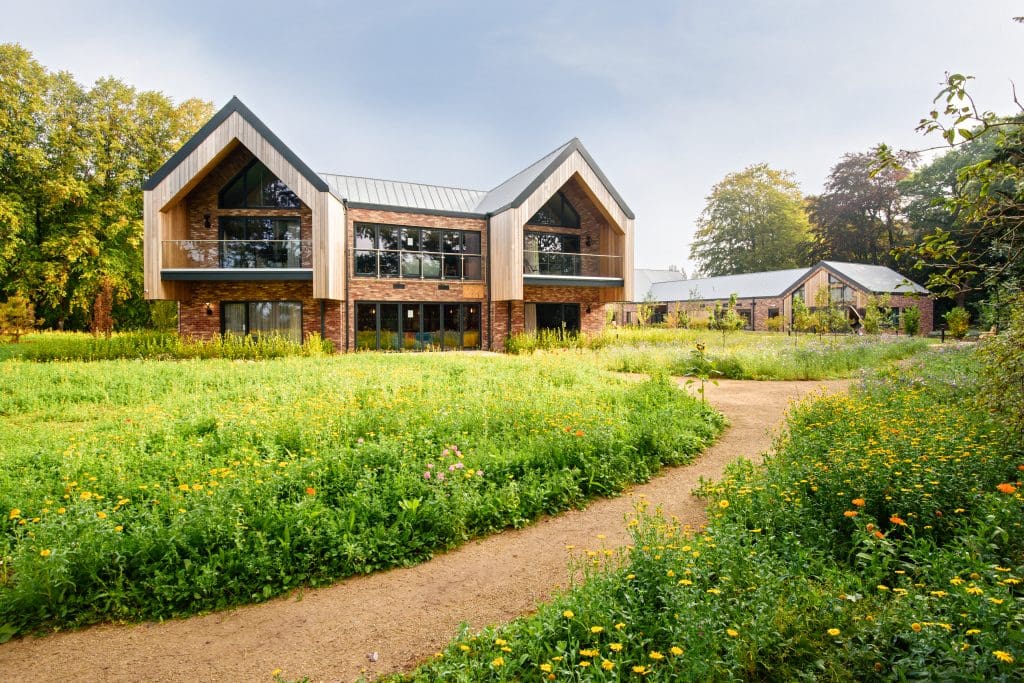-
Call Us: 0330 111 2015


Jump to a section ▼
› Introduction
› How would you know if you were going to relapse?
› More about alcohol and drug addiction relapse
Speak with our admission team
Call now on 0330 111 2015At Delamere, we treat people with alcohol, drug and other addictions. One of the sad realities of addiction means that a return to addictive behaviours can occur following trauma or grief. We work alongside those who are no longer in active recovery to help them back on their way.
This is when a person with an addiction starts to use a substance again after having a detox and a period of recovery. It could occur due to increased triggers to the person in recovery, such as trauma or grief. It could begin from one ‘slip’ in the recovery phase, which is why we encourage guests who are at risk of a short term slip to get in touch with us as soon as possible.

guests often ask us about addiction recovery success rates, and how likely they are to reject their recovery principles in the future. Each centre will have a different success rate, but we’ve written more on this topic in a separate article, ‘How often do people relapse?’ as it’s worth going into a bit more detail.
Yet we do see similar trends, and this is because there are common reasons and triggers for relapsing. There are certain times of year that can be difficult for some people, and situations – whether work, social, or personal – that can be triggering for others.
At Delamere, we put a lot of care and attention into understanding the triggers of our guests, but with the ups and downs of life, a return to active addiction still remains a reality when times prove challenging for recovering addicts.
Each person and their circumstances are unique, but friends, family and work colleagues may notice if a person’s habits change. In some cases, a relapsed addict may become secretive about their actions, whereabouts, or possessions. Others may be less bothered about hiding their substance use when they are no longer in active recovery.
If you are concerned that someone you know is following an alternative lifestyle choice after rehab, you may find it reassuring to know that we are here to help anyone affected from addiction. We know that it isn’t just the person battling the addiction that can suffer.
Family members and friends sometimes tell us that their loved one is in denial. In this case, we do have intervention services which are designed to encourage and motivate action.
In this section, we will look at alcohol and drug addiction more closely, and what a return to addictive behaviours can look like both at a top level and medically. Remember that the relapse meaning is when someone with an addiction starts to use a substance again after a period of recovery; in this case, the substance is alcohol or a specific (or combination of) drug.
Each person’s circumstances are different. Sobriety and abstinence takes a daily effort. And many who are now sober will tell you that it also takes effort each second, minute and hour of the day at some points.
Alcohol is a widely used substance, and there is no shortage of its presence in restaurants, pubs, households, advertising and many more places too. For that reason, being alcohol-free after rehabilitation is not always going to be an easy journey. The same can be said with drugs, which are not as widely available, but are still simple enough to get hold of by those who want to use them.
Those addicted to alcohol (commonly referred to as alcoholics) or drugs often depend on very tight support networks to keep them focused on their recovery. This aftercare is essential for those suffering with addiction, but it also requires the willpower and strength of the individual too.
As with all addictions, there are common triggers that may lead to a halt in recovery. It could be work stress, a holiday season, or even just the fear of missing out. It could be the craving for oblivion, a release, or any of the other feelings that a user has connected with the use of alcohol or drugs.
For those who have had a significant addiction to alcohol or drugs, a detox is a medically supervised way of ending the reliance on the substance. This is because, unmanaged, there are symptoms of alcohol and drug withdrawal syndrome that could be uncomfortable or dangerous.
Therefore a relapse in the drinking of alcohol, or the use of drugs, requires the same measured and supervised approach for the safety of the guest.

We have a full range of articles all about drug and alcohol relapse if you are looking to learn more on the topic. If you need to speak to one of our team at Delamere, contact us to talk about your alcohol or drug reliance, or for someone you are looking to support in their recovery.
Start your recovery journey by calling our admissions team today.
Confidential. Straightforward. Friendly.